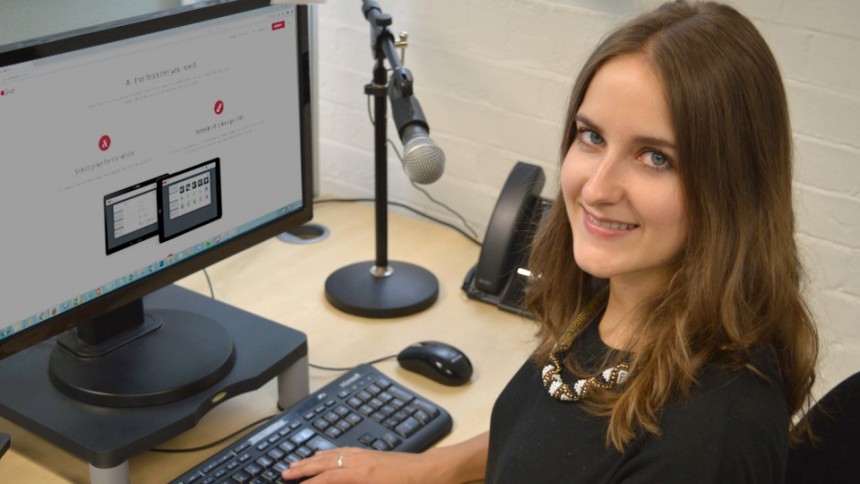Hello, I’m Laura and I manage your captioning support here at Ai-Media UK
For anyone who is deaf or hard of hearing, it’s challenging to fully participate in the verbal communications taking place every minute of every day. Live captioning provides access to spoken dialogue displayed on a screen and delivered in real time.
We use real people, not computers, to convert speech into text to ensure the text matches what’s being said. This all takes place using the internet to stream the words live to laptops, tablets and smartphones. Ai-Live provides access and inclusion anytime, anywhere.

To book in a demonstration of Ai-Live, call me on 0203 763 6300 or send me an email.

How Ai-Live Captioning Works
Live captioning is designed to never interfere with your meeting, lecture, or event.
We simply need to hear what’s being said. To caption you, we have to hear you. There are a number of ways to achieve this including a direct telephone call, Skype call, live webinar or online lecture.
Our captioners create real-time captions by either typing into a stenotype machine with a phonetic keyboard (as used by court reporters) or re-speaking what they hear into voice recognition software that they have specifically trained to their voice. These captions are then streamed over the internet to your smartphone, laptop or tablet.
Ai-Live is an Access to Work (AtW) and Disabled Student’s Allowance (DSA) approved service providing access and inclusion for people who are deaf or hard of hearing in schools, universities and the workplace.
Where can you use Ai-Live Captioning?
Use live captioning for meetings, training sessions and teleconference calls. In addition, a transcript of your session is made available within 24 hours. Through your Ai-Live account, you can view your captions, book sessions, access your transcripts, and add any tricky jargon to your dictionary to further enhance the quality of your live captioning experience.
With deaf students being 2.5 times less likely to complete high school compared to their hearing counterparts, live captioning can make a difference by providing real-time access to spoken content. For students impacted by Autism Spectrum Disorder, live captioning reduces anxiety providing a focal point for the delivery of information. Live captioning also improves literacy and language comprehension for all students.
Live captioning benefit students who are deaf or hard of hearing, are affected by Autism Spectrum Disorder, have Dyslexia or have English language needs. Students receive live captioning for their lecture and a transcript immediately following the class. Disability Service Officers can send us their students’ timetables and we’ll book the whole semester of live captioning ready to go.









